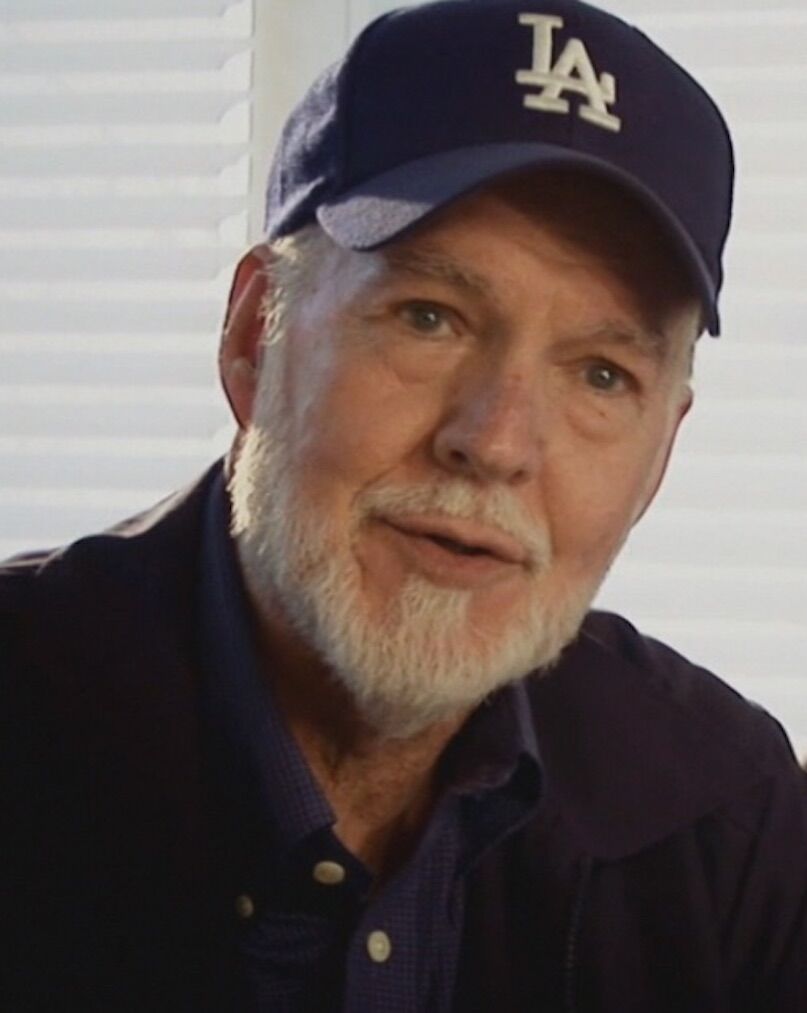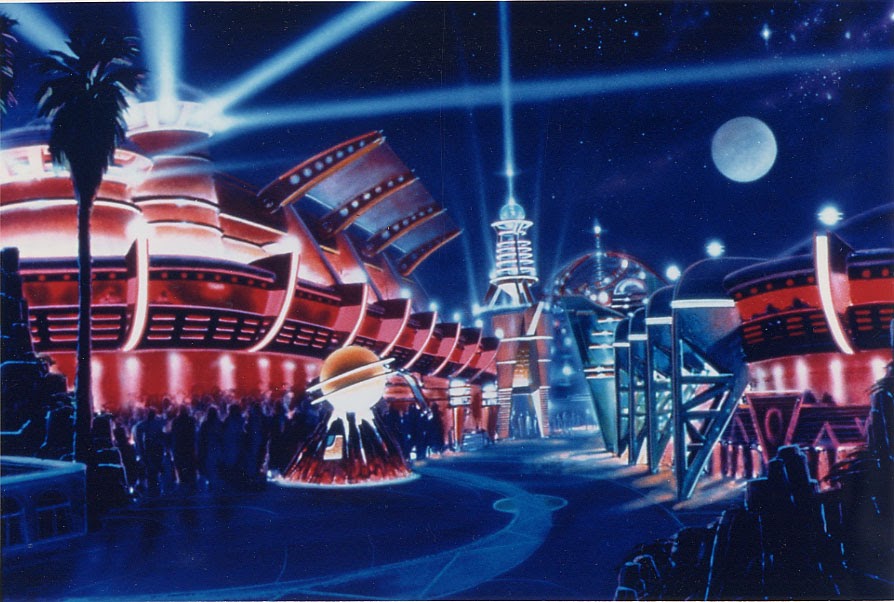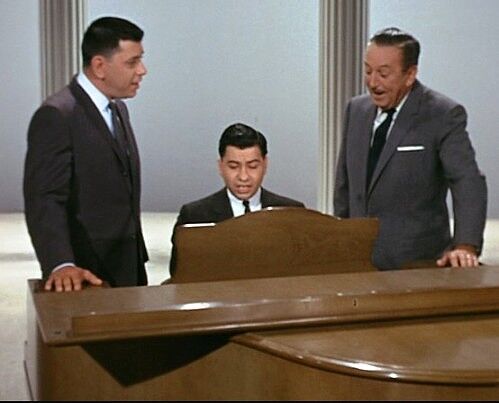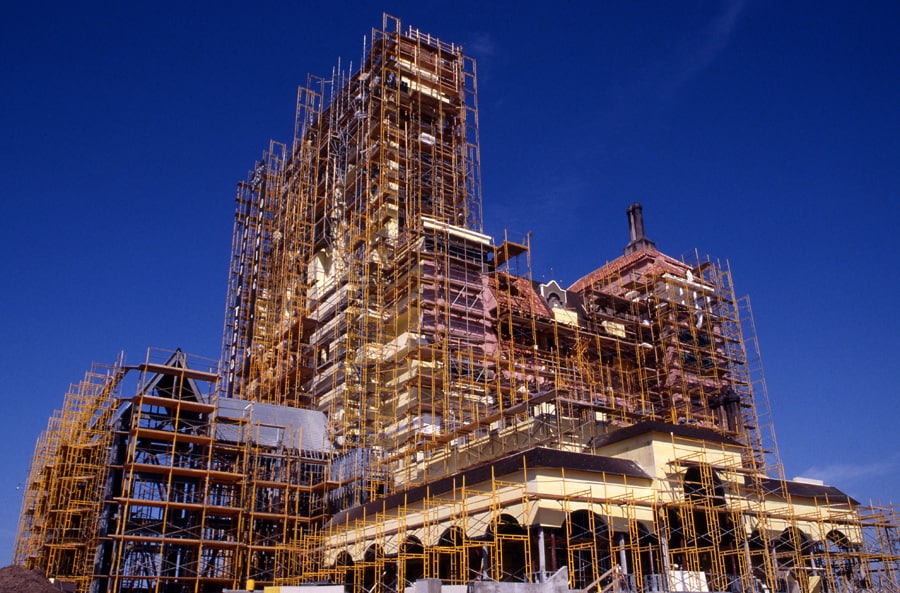By 1993 the Disney-MGM Studios was fully up and running, hotel capacity had been greatly expanded, and the Magic Kingdom had its first major addition since 1975. Plans were now on the table to update areas that had been struggling. Tomorrowland and Future World were both outdated and needed to be modernized, or even future proofed. 1993 saw the start of these updates.
Magic Kingdom
The Hall of Presidents received its first major update in September and October with the addition of Bill Clinton. Instead of just adding the new president to the lineup, the whole show was reworked and shortened by about six minutes. Now narrated by Maya Angelou, the film portion focused on social issues, particularly slavery, and ended with a new speech by Lincoln, now voiced by Peter Renaday, and by President Clinton, who recorded his own speech.

Fantasyland saw a few updates as well. Dumbo was upgraded from its original 10 vehicle configuration to 16 elephants. Gurgi’s Munchies and Crunchies became Lumiere’s Kitchen on February 13. Troubadour Tavern became Hook’s Tavern at some point later in the year. Magic Journeys would close its doors permanently on December 1 to make way for a new show that would feature the upcoming The Lion King opening the next year.
Tomorrowland began to change drastically, as Disney started their overhaul of the land to make it more timeless and less based on the actual tomorrow and more in line with EuroDisney’s Discoveryland, a Jules Verne-esque look at the future. The first of these changes started on August 16 with the closure of the Carousel of Progress, followed by the closure of Mission to Mars on October 4. While Mission to Mars’s replacement would take a bit more time, the Carousel of Progress, now named Walt Disney’s Carousel of Progress, reopened on November 23.

The new version featured a repainted façade and marquee sign shaped like a large gear. The holding pens also had a new preshow on TV screens discussing the history of the attraction and the Sherman brothers’ music. The show itself saw an extensive overhaul. The time periods of the first three scenes remained the same, with the new scene being set sometime in the near future, with voice activation and virtual reality gaming. The original song “Great Big Beautiful Tomorrow,” missing since the attraction closed at Disneyland and never present at the Walt Disney World version, replaced “The Best Time of Your Life.” The voice actors were all replaced, and most notably, John, the father, was now voiced by Jean Sheapard, and the original father, Rex Allen, now voiced the grandfather.

EPCOT Center
Like Tomorrowland, EPCOT’s Future World was becoming outdated. However, Epcot was designed with a plan for this; the corporate sponsors would renew contracts and update the attractions. While several had plans to do this, others began to drop and not renew. On June 24, General Electric declined to renew its sponsorship of Horizons, which then officially ended on September 30. Across the park, Kraft also decided not to renew, officially withdrawing its sponsorship on October 1, 1992. However, Nestle would take Kraft’s place officially on January 1, and the pavilion would start to see the changes on September 27, when Listen to the Land would close.

However, Living with the Land would open on December 10. The ride itself changed little. The Symphony of the Seed opening sequence was replaced with a diorama of a thunderstorm. The filmstrips were also updated, and the finale scene was replaced with the array of faces we see today. The Farmers Market closed on October 26 and reopened as Sunshine Season Food Fair on November 9. The Land Grille Room closed October 4 and reopened as Garden Grill on November 15. The Broccoli and Co store closed on October 25 and reopened November 10 as the Green Thumb Emporium.

Communicore began its transformation into what would become Innoventions. Rather than support the other pavilions, the new concept would showcase other sponsors with exhibits that would not demand a whole pavilion and could be updated more regularly. Backstage Magic would close on October 1, and Expo Robotics on October 3. The Travel Port had already closed April 27, 1992. The American adventure received a minor upgrade with new animatronics and an updated version of Golden Dream.
The Disney-MGM Studios
Little happened at the Studios in 1993, as like the other parks, it was prepping for more significant changes to come. Sunset Boulevard and the Twilight Zone Tower of Terror were under construction. As part of the changes, Beauty and the Beast Live on Stage was temporarily moved to the Backlot Theater on May 23. Located in the New York Street area, this served as the home for the production as the Theater of the Stars was demolished to be relocated further down the new expansion.

Resorts and Entertainment
Over at the Polynesian, renovations to the Barefoot Bar, Captains Cooks, and the shops on the second floor were carried out, and Sunday Brunch was discontinued at Papeete Bay. At Pleasure Island, the large Jessica Rabbit sign was moved to the West End Stage from its previous home above the now closing Jessica’s store. Merriweather’s Market food court closed to become the Pleasure Island Jazz Company which opened August 27.

The entire decade of the 1990s was a period of change for Walt Disney World; some years saw more change than others. 1993 saw significant changes, but more of what occurred were closures. While EuroDisneyland’s problems were causing changes and scale backs of plans, what closed in 1993 would still bear fruit. 1994 would see new hotels, attractions, and even lands come to Disney World.


I want it to be known I love these, especially the YouTube videos. 90s Disney is tough to top
Why are people giving this article one star? Because we all miss when Disney did things right?